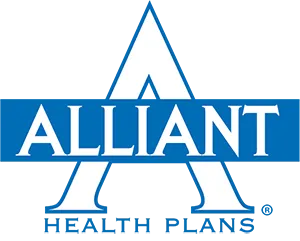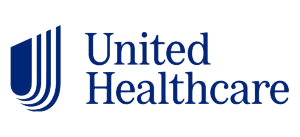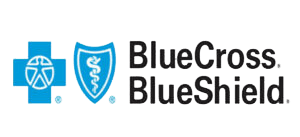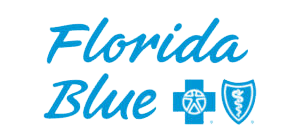Sober Living in Rome, GA
Sober living options offer people in recovery a chance to heal and grow. Fairland Recovery Center provides several options for sober living in Rome, GA, which offer a safe space for those working on staying clean.
At Fairland Recovery Center, we have sober living homes that we work with to ensure a smooth transition from treatment to recovery. Our clients don’t go into sober living at a deficit. Clients entering sober living are often equipped with emotional resilience and psychological understanding.
In addition, many clients have supportive relationships with family, friends, or sponsors, which are critical in their recovery journey.
With this level of care, individuals can find the right fit for their recovery journey in Rome, Georgia.
The Concept of Sober Living
Sober living offers a supportive environment for people in recovery. It helps them build skills and connections as they work toward long-term sobriety.
Sober living homes provide a drug and alcohol-free space for people in recovery. These homes bridge the gap between rehab and independent living. Residents follow the rules and take part in group activities.
Sober homes teach life skills and offer peer support. People learn to manage daily tasks while staying sober. This setup helps reduce the risk of relapse.
We work to create a network of support for those in recovery from substance abuse.
Typical Features of Sober Living Homes in Rome, GA
Sober living homes have key features that promote recovery:
- Regular drug tests
- Curfews
- House meetings
- Chore assignments
- Employment requirements
Residents share living spaces and responsibilities, which builds community and accountability. Many homes offer counseling and peer support meetings.
Sober living teaches life skills like:
- Budgeting
- Job searching
- Conflict resolution
- Healthy relationships
These skills help residents prepare for independent living after their stay and build upon aftercare tools.
The Importance of Sober Living Program Location: Rome, GA
Rome, GA, provides a good setting for sober living. The city offers a mix of urban amenities and small-town charm. This balance can help people in recovery feel connected without being overwhelmed.
Rome has resources that support recovery. These include:
- Support group meetings
- Job opportunities
- Educational programs
The community in Rome often supports recovery efforts. This backing can make a big difference for those in sober living homes.
Rome’s location also allows easy access to nature. In our drug rehab programs, outdoor activities play a vital role in the recovery process. They provide healthy ways to reduce stress and build new habits.
Building a Supportive Community
Sober living homes create a sense of belonging among residents. People share similar experiences and goals. This fosters a strong support system.
Residents often take part in group activities. These may include:
- Shared meals
- House meetings
- Recreational outings
These activities help build friendships and trust. Residents learn to rely on each other for emotional support. They also practice social skills in a safe setting.
At our Rome sober living homes, we encourage involvement in local 12-step programs and continued outpatient treatment. This helps residents build a more comprehensive, wider support network in Rome and ease the transition back into the community.
Support Services in Sober Living – Rome, GA
Rome, Georgia, offers several support services and treatment options for sober living residents. These services help individuals maintain their sobriety and build a strong recovery network.
Fairland Recovery Center’s Addiction Treatment Services
These support services at Fairland Recovery Center aim to empower clients in their recovery program by providing the tools and environment necessary for lasting sobriety. Residents can build a solid foundation for a healthier, substance-free life through comprehensive support and structured programming.
Residents have access to professional counseling services that focus on drug addiction recovery. These sessions are aimed at addressing the psychological aspects of substance use disorders and equipping clients with strategies to cope with cravings and triggers.
Accessing Local AA and NA Meetings
Alcoholics Anonymous (AA) and Narcotics Anonymous (NA) meetings are vital for many in sober living. Rome has several options for both AA and NA meetings throughout the week.
These meetings allow individuals to share their experiences and support each other. They follow the 12-step program, which many find helpful in maintaining sobriety.
Local treatment centers often have information about meeting times and locations. Online resources can also help people find nearby meetings.
Finding Family Support Groups
Family support is crucial for those in sober living. Rome offers groups specifically for families affected by addiction.
Al-Anon and Nar-Anon meetings are available for family members of those struggling with alcohol or drug use. These groups help families cope with the impact of addiction.
Our rehab center also provides high-quality family therapy sessions. These sessions can improve communication and heal relationships strained by addiction.
Support groups give families tools to support their loved ones in recovery while also caring for their needs.
The Role of Peer Support in Sober Living in Rome, GA
Peer support plays a crucial role in sober living in Rome, GA. It creates a sense of community and understanding among those in recovery. Peer support groups and programs offer valuable resources and encouragement for individuals on their journey to sobriety.
Peer support groups in Rome bring together people with shared experiences. These groups provide a safe space for individuals to discuss challenges and successes, and members often find comfort in knowing they’re not alone.
Recovery coaching sessions are available with certified peer specialists. These sessions offer personalized guidance and support. Peer support helps build confidence and self-esteem in those recovering from addiction.
Evening group therapy sessions meet regularly, allowing for flexible attendance. These gatherings foster connections and provide ongoing encouragement. Participants learn coping strategies and share practical tips for maintaining sobriety.
The Journey to Wellness
Recovery is a process that involves taking small steps, maintaining sobriety, and embracing positive changes. It requires commitment and support to build a new life free from addiction.
Initial Steps in Recovery
Taking the first steps in recovery can feel challenging. Many people start by:
- Admitting they need help
- Reaching out to family, friends, or professionals
- Entering a behavioral therapy treatment program
It’s normal to feel uncertain at first. The key is to focus on one day at a time. Setting small, achievable goals helps build confidence.
Many find group support helpful early on. Attending meetings provides a connection with others on the same path as clients explore the root causes of their addiction. Therapy can also help address underlying issues.
Learning healthy coping skills is crucial. This may include:
- Stress management techniques
- Building a daily routine
- Practicing self-care
Maintaining a Sober Lifestyle
Staying sober takes ongoing effort. Creating a stable residential treatment environment is important. Sober living homes offer a supportive place to transition.
Developing new habits supports long-term sobriety:
- Regular exercise
- Healthy eating
- Getting enough sleep
Building a sober social network provides encouragement. Joining support groups or sober activities helps form new connections.
Avoiding triggers is key. This may mean changing routines or distancing from certain people or places. It is also wise to have a plan for cravings or difficult situations.
Continuing care, like outpatient therapy or check-ins with us, helps maintain progress.
Embracing Change and Hope
Recovery brings many positive changes. It’s a chance to rediscover oneself and build a fulfilling life.
Setting new goals gives a sense of purpose. This might include:
- Pursuing education
- Rebuilding relationships
- Exploring new hobbies
Celebrating small victories boosts motivation. Each sober day is an achievement.
Learning to manage emotions in healthy ways is transformative. Many find mindfulness or meditation helpful.
Hope grows as one progresses in recovery. Seeing others succeed can be inspiring, and sharing one’s story may even help others start their journey.
Remember, setbacks don’t mean failure. They’re opportunities to learn and grow stronger in recovery.
Community Partnerships
Sober living homes in Rome, GA, work with local groups and other treatment providers to help people in recovery. These partnerships make a big difference in supporting those who want to stay sober.
Collaboration with Local Institutions
Local churches offer meeting spaces for support groups. Some provide meals or clothing to those in need.
Rome’s police and fire departments receive addiction training. They learn how to respond to emergencies and guide people to recovery services.
Educational Outreach and Awareness
Sober living homes join schools to teach kids about drugs. They share real stories to show the risks of substance use.
Recovery groups hold events to inform the public. They explain how addiction affects families and the community.
Local media helps spread the word. They air stories about recovery successes and available help.
Volunteers from sober homes speak at health fairs. They hand out info on signs of addiction and where to get help.
These efforts aim to reduce shame around addiction. They show that recovery is possible with support.
Role of Dual Diagnosis in Substance Abuse Treatment
Dual diagnosis refers to the simultaneous presence of both a substance use disorder and one or more mental health disorders. This integrated approach is crucial in substance abuse treatment, as addressing only the addiction or the mental health condition in isolation often leads to suboptimal outcomes.
Individuals with mental health conditions such as depression, anxiety, or PTSD frequently engage in substance use as a form of self-medication, which complicates both their recovery process and their mental health.
Treating both the substance use disorder and the underlying mental health disorder simultaneously, also known as integrated treatment, is essential for effective recovery.
Effective therapeutic interventions like Cognitive Behavioral Therapy (CBT) and Dialectical Behavior Therapy (DBT) play a significant role in dual diagnosis treatment. CBT helps patients recognize and alter negative thought patterns associated with both their mental health conditions and substance use.
Similarly, DBT offers practical skills for managing emotions and improving interpersonal effectiveness, which is particularly beneficial for individuals with borderline personality disorder and other mood disorders often seen in dual-diagnosis scenarios.
The detoxification process is another critical component in the treatment journey. Detox helps to safely manage withdrawal symptoms associated with substance cessation, providing patients with a better foundation for engaging in therapy.
After detox, patients are in a more stable condition to fully participate in CBT, DBT, and other therapeutic modalities, enhancing their chances for long-term recovery.
Join Us on the Path to Recovery!
Don’t let struggles define your future. At Fairland Recovery Center, our program for sober living in Rome, GA, provides the support, guidance, and community you need to reclaim your life through drug & alcohol rehab. Join us today for a journey towards healing and hope.
Call us at 770-797-7652 to learn more about our programs, meet our compassionate staff, and take the first step toward a brighter tomorrow with an individualized treatment plan.
Fairland Recovery Center Programs
Find Help Now
We accept most major insurances


